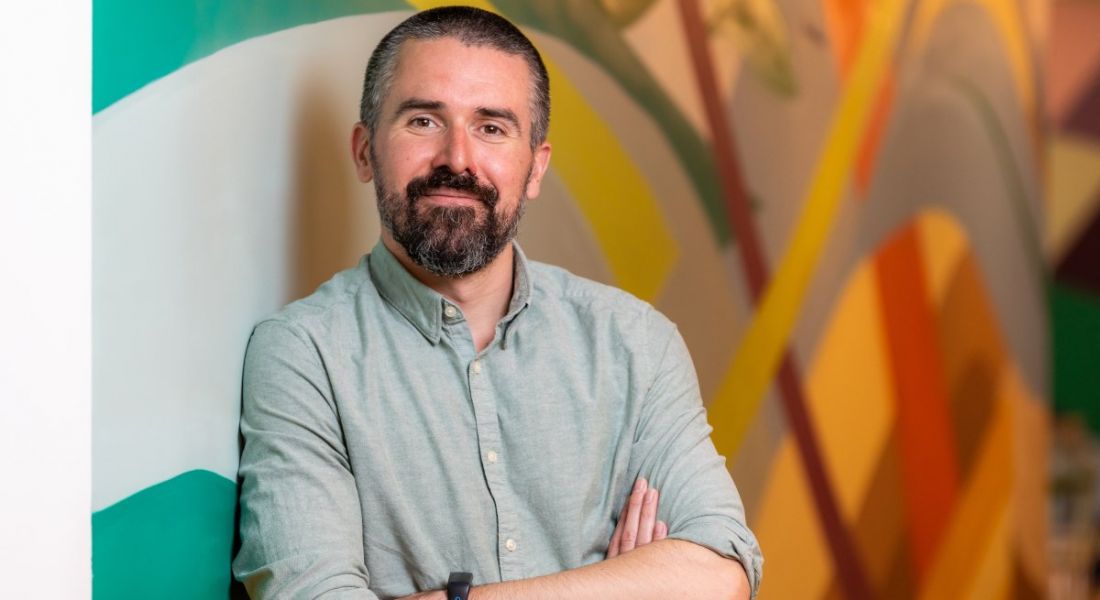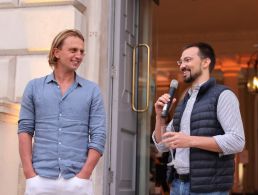Leading a dynamic team at Patreon, product manager Colin Aherne helps to ensure creators get paid every month and that they are safe on this fast-growing platform.
It seems like a basic right: to be paid for your work. But as the new world of digital creators has exploded, the guidelines and regulations around copyright, credit and payment for this line of work have had to be written quickly and are still being edited daily.
Patreon has created a service through which independent content creators can be compensated and supported for their work, their art.
Here, Colin Aherne talks to us about his role as a product manager at Patreon’s growing base in Dublin and what it means to him.
‘We genuinely feel like we’re doing something positive that has the potential to change the world’
– COLIN AHERNE
What is your role within Patreon?
I head up product management for all of Patreon’s payment and risk products. That is, all of the tools and processes that ensure that creators get paid every month while keeping the platform safe for all users.
Our mission at Patreon is to fund the creator class. Our team here in Dublin is playing a crucial role in making that happen.
If there is such a thing, can you describe a typical day in the job?
I’m a product manager, so a lot of my day is spent thinking deeply about what our customers – creators and their patrons – want and need from a platform such as ours.
Patreon is pretty unique. We’re solving a whole new set of problems that there aren’t always readymade solutions for. I spend a lot of my time deep in the data using tools like Tableau, Mode and Amplitude, and listening to users in interviews to better understand how we can build payment tools that put creators first.
As I’m in a management role and because Patreon is significantly scaling our presence both here in Dublin and internationally, I spend a lot of my time on recruitment. We’re always on the lookout for talented individuals who exhibit our core behaviours. At the moment, I’m often in two or three interviews per day.
I’m also site lead for our Dublin office. We established a presence here last year and we’ve grown considerably. One of the big challenges of my role has been to figure out what that means in the context of the pandemic, with everyone working remotely. I spend a lot of my time thinking about and advocating for the role that our office can play both now and in the future of Patreon post-pandemic.
What types of project do you work on?
We’re building out the critical infrastructure that ensures that hundreds of thousands of creators get paid by the people who love their work the most.
There’s a real sense of mission at Patreon that makes everything I work on feel meaningful. I’m working with teams in Dublin and San Francisco who are building and maintaining our payments and billing platform, making sure creators get paid on time and keeping our platform free of fraud and safe for all users.
One key initiative is internationalisation. We’re really focused on scaling our presence internationally, for example, extending support to currencies and payment methods in Latin America and Asia. That brings a whole host of challenges, such as how you manage fraud in new markets.
A big part of my role is about planning for the future. The creator economy is such a vast and largely untapped market. We believe that we’re going to be the membership platform of choice for creators who want to create a community for their most dedicated fans.
A lot of my time is spent thinking about the 97pc of creators who aren’t on the platform today and what their needs will be. How will we scale up our operations to meet that demand? Strategic thinking coupled with deep empathy for creators is the foundation of the work I do at Patreon.
What is the hardest part of your working day?
There’s too little time to talk to all of the people I need to talk to.
Working across time zones can be a challenge and one that I haven’t previously experienced in my career, at least to this extent. To counter that, I’ve advocated for co-location of the various roles in Dublin that we need to move forward the product strategy agenda – not only engineers but product managers, designers, data scientists, researchers. That allows us to act with much greater autonomy and helps relieve the ‘calendar crunch’ at the end of the day.
Do you have any productivity tips that help you through the working day?
Like a lot of people, I use a two-monitor set-up in my home office. One thing I’ve learned is to turn off the second monitor when I’m on video calls; it’s too easy to get distracted by emails and IMs while you’re speaking to colleagues. We’re all struggling with Zoom fatigue at the moment so the least I can do is give my colleagues my full attention so that we’re all using our time productively.
When you first started this job, what were you most surprised to learn was important in the role?
My professional background is primarily in B2B so I have a lot of experience in building products for business users. Patreon is a marketplace-style business model with patrons, who are everyday customers like you and me, paying creators. I tended to think about creators as the businesses in this equation – in most instances, sole traders and small creative enterprises.
However, I’ve learned that it’s not as simple as that. Most creators don’t think about themselves in those terms, so I’ve had to shift my thinking. I tend to think about both sides of the equation as individuals now.
How has this role changed as this sector has grown and evolved?
Creators need Patreon now more than ever. In the pandemic, many creators have seen their traditional sources of income dry up. They’ve turned to Patreon and to their most dedicated fans to ensure that they can still earn a living.
We’ve seen huge growth as a result. That in turn has meant that the pace of the organisation has quickened. We’re expanding faster, both in Dublin and elsewhere, than we anticipated. That creates opportunities and challenges in the business. There’s lots of focus on critical infrastructure and processes and lots of focus on finding the right talent to manage that growth.
What do you enjoy most about the job?
The mission is key for me. I dabbled in music and art when I was younger, so doing something that empowers creators to earn a living from the things they’re truly passionate about gives me a real sense of satisfaction. Lots of people have come to Patreon that way. There are some tremendously talented people from all walks of life working here. We genuinely feel like we’re doing something positive that has the potential to change the world.




